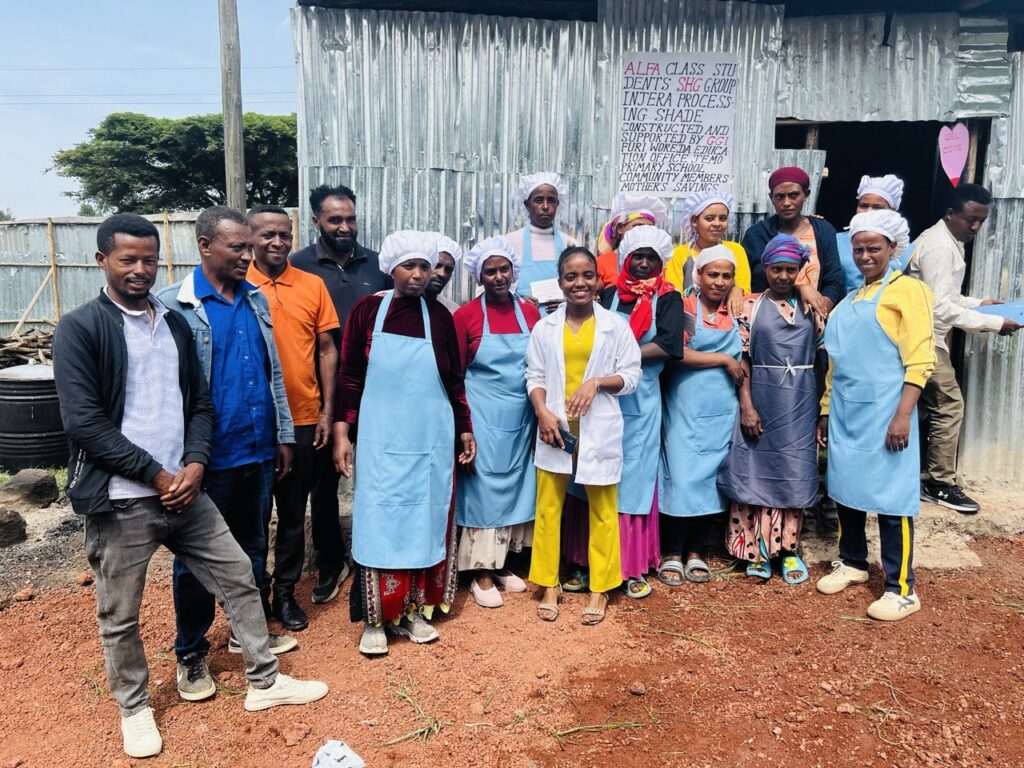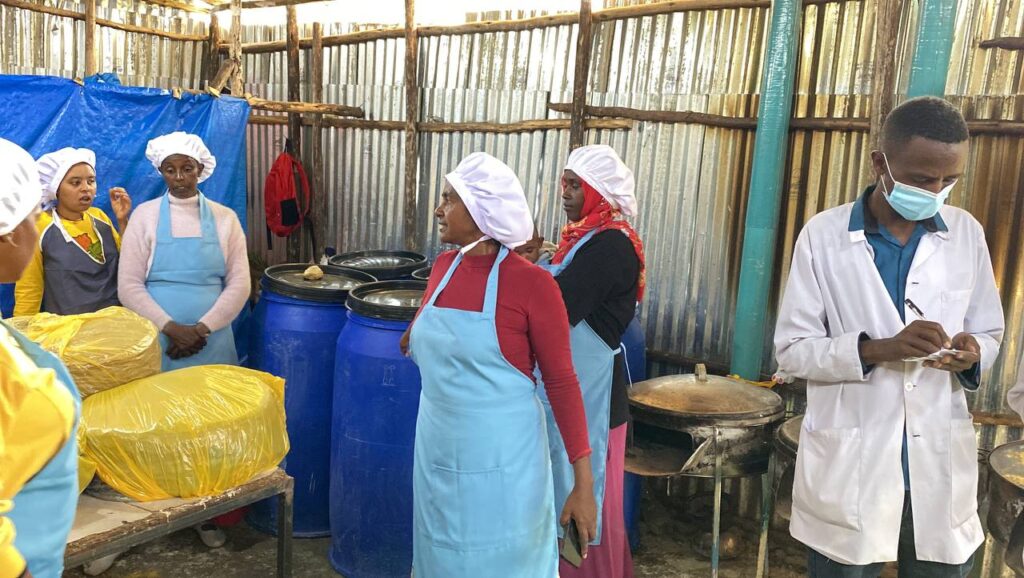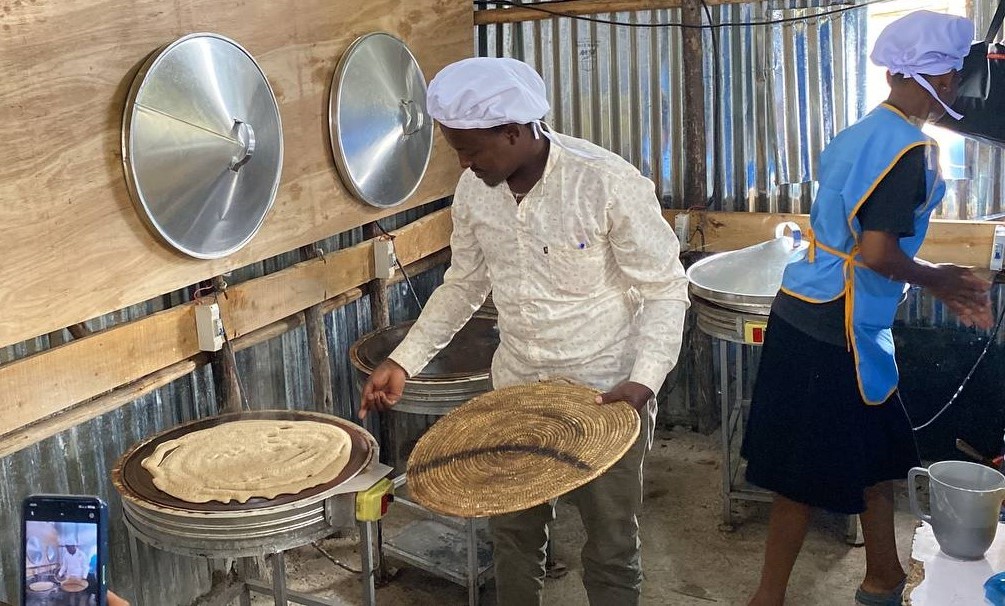When mothers and guardians at Jemo 2 Primary School noticed their children were being served low-quality injera—a traditional Ethiopian flatbread—they saw an opportunity not just to improve nutrition, but to build something of their own. They launched an injera production business that now supplies the school with high-quality injera, improving students’ health while also meeting a market need.

This group, known as a Self-Help Group (SHG), brings together parents and guardians of Speed School students. Aided by the Geneva Global Ethiopia team, Self Help Groups provide the mothers or other guardians of all Speed School pupils with the economic and social capacity and commitment to support their children’s schooling beyond the single year program. The groups engage mothers (or guardians) in income-generating activities and collective savings to cover the future costs (both direct and indirect) of schooling.
They conduct community-based actions to manage the various barriers to their children’s school participation and success, including poor health and hygiene, gender bias, insecurity, and more.
The SHG process begins with shared savings, which members can use to provide loans within the group or to launch small businesses. The members began the SHG saving 20 ETB but inspired by the idea of the new project, they quickly increased to 50 ETB. This allowed the group to kickstart injera production, using 89,400 ETB of their own money and 160,625 ETB collected from community members, school directors, and the Woreda Education Office.
Financial literacy classes had laid the foundation, helping members understand the importance of stable income and saving for the future. Like other SHGs replicated across Ethiopia, the group aimed to carve out a niche in the market with a high-quality, community-driven product.

After intensive training and planning, Jemo 2’s SHG launched production on May 1, 2024. With support from Geneva Global, access to Jemo 2’s facilities, and the members’ self-starter attitudes, the business quickly gained momentum. Their efforts have gone beyond income generation—supporting their children, sustaining their households, and uplifting the wider community.
When production first began, the group experienced frequent power outages and lacked adequate facilities. This made production slow and inconsistent, making it difficult to achieve their business goals. However, the community rallied around the group, providing a space in Jemo 2 and consistent electricity. With these supports in place, the SHG quickly stabilized and began to grow. They now produce 2,500-3,000 injera daily, providing for half of the school’s overall needs, and hope to pursue opportunities to expand even further.
Early on, the business’ deeper mission and rapid progress gained attention from two governmental bodies: the Adult and Informal Education (ANFE) Department and the Oromia Regional Education Bureau (REB). Combined, these entities invested 277,000 ETB (~$1,900) into the injera business. This investment boosted not just the group’s finances but also their confidence and pride. Because of this support, the Jemo 2 SHG formalized the business. They have used the donation to cover the cost of labor and construct an enclosed space for injera production.
In addition to advancing their livelihoods and supporting their community, the SHG has also challenged cultural and gender norms through their work. Ethiopia’s customs typically assign kitchen work, such as cooking injera, to women. However, because the SHG has both male and female members, the group has experienced some cultural resistance.
One member of the SHG discusses his perspective of being a man in the injera production business:
“This is women’s work; my culture didn’t allow [men] working women’s duty… but after the training and the results of the program, now all of the members, regardless of age, sex, and other criteria, are equally participating and benefitting.“

Jemo 2 Primary School’s Deputy Chairman also acknowledges the difficulties SHG members face in confronting societal norms,
“Exposure to new ideas and getting training from experts can positively change an individual’s behavior; from this, we are learning to accept diversity, to respect each other, to plan for our children’s sustainable learning, and to mobilize all members.”
The long-term impact of the SHG’s work extends far beyond any individual’s experience. The stability they’ve created is not only strengthening their own households but also contributing to a more secure future for students across Jemo 2 and the wider community in challenging social norms, they have sparked social cultural change. The group’s determination to better both themselves and those around them has had reverberating impacts on their children and community as well as glowing praise for Geneva Global’s life-changing efforts in this area and throughout Ethiopia.